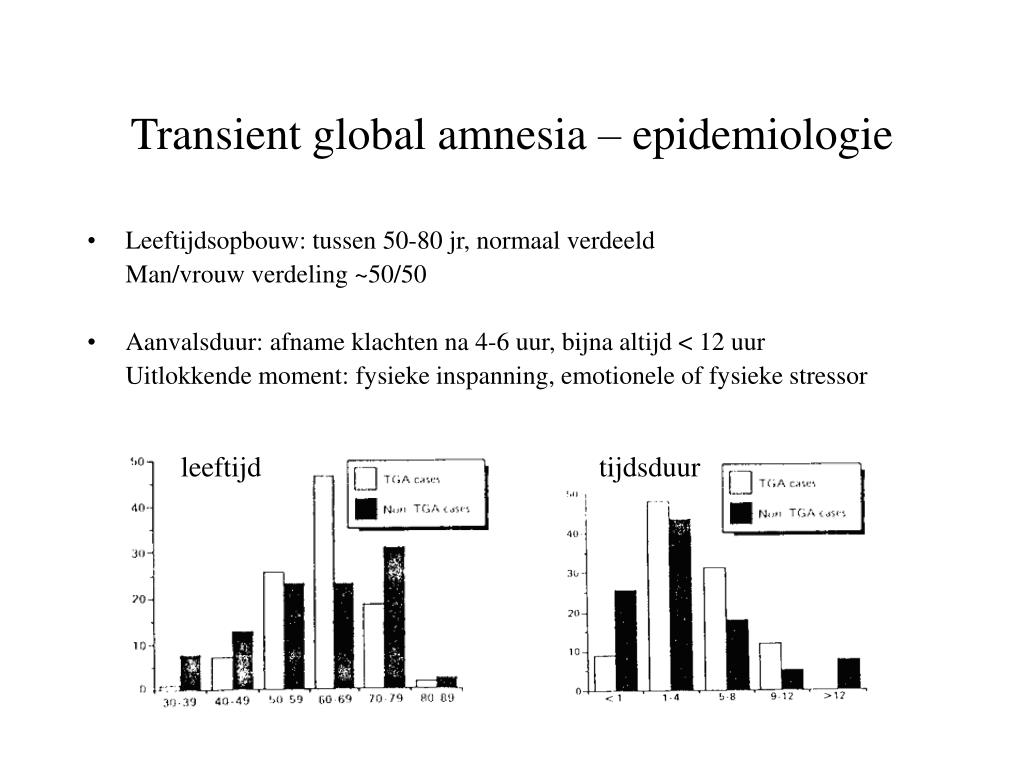
However, during the episode, patients with CPS exhibit automatisms and often blankly stare unlike patients with TGA who are alert, attentive and question repetitively. This is due to lack of insight in the latter.ĭifferentiating CPS from TGA can be difficult when the patient presents in the postictal state. Although in both conditions disorientation to time exists, repetitive questioning often occurs in TGA, whereas it does not usually occur in ACS.
TRANSITIONAL GLOBAL AMNESIA WIKIPEDIA SERIAL
Hence, the ability to perform serial sevens or spell WORLD backwards is impaired in ACS, whereas it is not affected in TGA. Inattention is the key deficit in ACS, whereas TGA patients remain attentive. In ACS, patients are unable to maintain a coherent stream of thought, but patients with TGA can maintain a coherent stream of thought. As patients cannot lay down new memories during the attack, they will never be able to recall the episode itself. In contrast, retrograde memory is slower to return to normal, with most recent memories returning last. On formal testing, minor changes in anterograde memory may persist for months, although this is unlikely to be detected clinically. There are no focal neurological signs.Īt the cessation of the attack, there is a rapid and apparently complete return of anterograde memory. Higher cortical functions such as language, calculations, visuospatial skills, reasoning and abstract thinking are intact. Immediate recall is unaffected as is memory relating to personal details. Occasionally, TGA is accompanied by headache, dizziness, nausea and vomiting. However, they are often agitated or anxious, and may repeat the same questions (mostly relating to orientation) every few minutes. The episodes occur in clear consciousness, patients remain fully communicative and alert throughout, and often carry out complex tasks like driving and playing music. Retrograde amnesia is often present but is of variable duration, which can range from a few hours up to years. 3 Psychological stressors (eg, arguments) are also well‐recognised precipitants.ĭuring the episode, all patients are unable to lay down new memories (verbal and non‐verbal), and thus experience profound anterograde amnesia. Attacks usually last for 1–8 h.Īttacks are often precipitated by a Valsalva manoeuver or physical activity including swimming, immersion in cold water, intercourse, acute pain, cerebral angiography, coughing, straining to defecate, heavy lifting, sawing and pumping. However, they are disoriented to time and place. Patients remain alert, attentive, and cognition is not impaired. The patient does not have any focal neurological symptoms. It is usually accompanied by repetitive questioning. TGA presents classically with an abrupt onset of severe anterograde amnesia.

Patients are often described-wrongly-as being confused. Many case reports were published before diagnostic criteria were put forward.


 0 kommentar(er)
0 kommentar(er)
